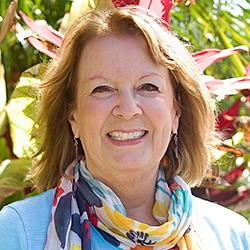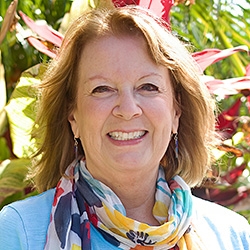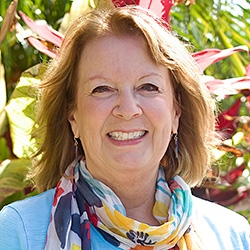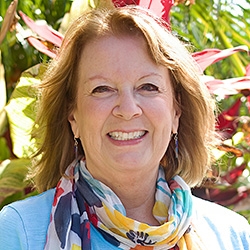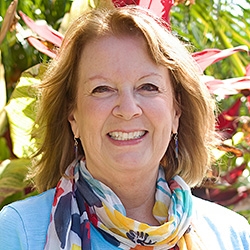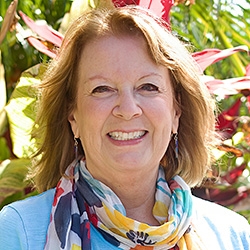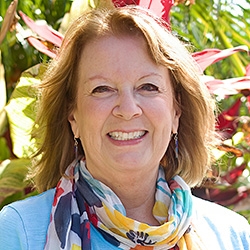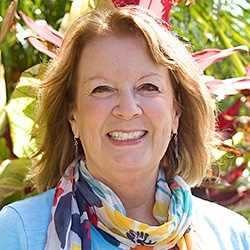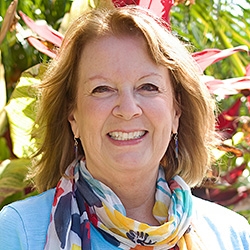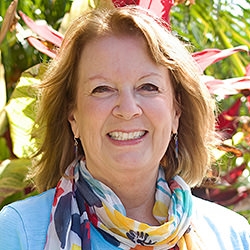

Search Results: feelings
-
The NVC Circle of Life is a mandala illustrating the process and consciousness of Nonviolent Communication. Mandala literally means "sacred circle" and symbolizes wholeness, balance and harmony.
-
Trainer Tip: The ways that we interact with our children shape the way they will interact in their world. How do your actions model compassion, tolerance, and love for your children?
-
Are you a spiritual seeker who longs for an approach that supports compassion for self as well as profound spiritual transformation? If so, you’ll enjoy this telecourse recording with Robert Gonzales and Leo Sofer as they engage in dynamic discussions about NVC as a spiritual practice.
-
In our fast-paced, busy lives it is tempting to practice NVC mostly with the left hemisphere of the brain, thinking through the steps quickly without slowing down to connect more deeply with feelings and needs. Don't miss an opportunity to integrate the hemispheres of the brain and the valuable information from the neural networks in the heart and gut.
-
Trainer Tip: When we try to make another person fit into a reality that we prefer in order to meet our own needs everyone suffers. Instead, bring your focus back to yourself. Notice which of your needs are met or unmet when you spend time with someone. Don’t judge them; just focus on your feelings and needs. Then, decide whether continuing the relationship will meet them.
-
Trainer Tip: Making a request is critical because it can greatly lessen any tension in the situation. Plus, it can clarify for you and the people in your life what it would take to meet your need. Make at least one specific and doable request to someone today.
-
Trainer tip: Judging others can affect our ability to communicate effectively with that person, or enjoy the relationship. Translating the static judgments (enemy images) we have of others into our own and others' feelings and needs can help us move into greater understanding, healing, and relief -- which can foster compassion and connection. Read on for more.
-
Trainer tip: Do you get into “right fights”? You know you’re in one when you’re arguing with somebody in order to be right or because you want to win. What needs do I hope to meet from winning or being right? Notice if you enter into a right fight today and shift your focus to your needs and connecting with the other person's needs.
-
Trainer tip: NVC consciousness recognizes interdependence. In this process each person is autonomous; everyone's needs matter; people have choice and responsibility for their actions; there's abundance, and a valuing of coming together. The dependence / independence paradigm assumes we either need someone else to be whole -- or we don’t need others at all. Commit to living autonomously. Notice where you struggle with this.
-
In listening to what our emotions tell us, and embracing what we do not know, we begin the path of courage. Even though our culture tells us not to, revealing our imperfections is where we can deeply connect. Living our lives more courageously honest, can shift us towards inspiring one another. Read on for how some people experienced this in coming together to transform one woman's heroine addiction.
-
Trainer Tip: In Nonviolent Communication, we see expressing honesty as a gift of our authenticity, and a chance for others to support us in getting our needs met -- this can flourish and deepen our relationships. We can notice and act on opportunities to be honest with the components of OFNR (Observations, Feelings, Needs, and Requests).
-
A chosen, interdependent world… In most cases, that's sure not the world we live in today, is it. But it could be the world we live in tomorrow. And you can choose to be part of bringing that better world to life – to be part of a gradual, joyful transformation – simply by using the dynamic, living power of Dialogue.
-
- Access, follow and train your intuition: how to know without knowing;
- Navigate difficult situations with care for all through an active awareness of your own power, as well as other sources of power in the room;
- Remain aware of who speaks and who doesn’t, of those whose pain is invisible – and what you can do about it;
- Walk towards someone presenting a challenge to a group you are facilitating, while continuing to hold care for the entire group, and more.
-
Trainer Tip: Thinking someone is bad, wrong, or evil can make it more difficult to connect with them. If we focus on this kind of thinking, we stay in the problem or conflict. The minute we step out of judgement and listen for the needs underlying their actions, we begin working for the solution. Put your focus in the direction of the result you want. Read on for an example.
-
In this course recording, you'll encounter new abilities and learn how to collaborate effectively from WITHIN a team. You'll be invited to build on interpersonal relationships, and branch out into the exciting challenges present when people work together toward a shared purpose.
-
- Unpack interpersonal, internalized, and institutional racism from the lens of NVC consciousness
- Hear and share personal stories and the impacts of racism, power, and privilege
- Learn how to translate “hard to hear" messages into meaningful conversations
- Expand and deepen the conversation of systemic and interpersonal racism
-
Trainer Tip: The better you connect with your child’s needs, the more you will defuse the power struggle. If he wants to behave in a way you don't like, start by understanding what's going on with him by making empathic guesses. Doing this out loud can expand your child’s emotional vocabulary and show that his needs matter to you, and build his trust. Once you learn what's going on with him, create a strategy that values both your needs.
-
Trainer Tip: It can be painful spending our days pretending we’re not who we are. For example, we may try not to be passionate in our expression because if we think its “too much” for people. This can lead to trying to figuratively to squeeze ourselves into small spaces in life. Alternatively, we can choose who to share our passion with, and speak our truth to. Today, notice what you need and to work actively to meet your needs.
-
Two NVC trainers went into dangerous, war torn territory to share the skills they found so valuable but end up learning that they need to first apply those skills before those they came to help could receive what they had to offer. Only when the foundation of connection and trust was built could they mediate the conflicts using empathic communication.
-
Trainer Tip: Sometimes you might find yourself in a situation where your need for love is not met. Consider ways in which a partner or friend could meet your need for love. Be sure to request something the other person is capable of doing. Whatever the situation, it is our responsibility to clarify how we can meet our need for love, while also considering the abilities of our loved ones to comply with our requests.

Quick Links
Subscription Preferences
Stay In Touch!
Looking for ways to keep up with NVC Academy news, get special offers, free resources, or words of inspiration? Here are five ways to stay engaged:


